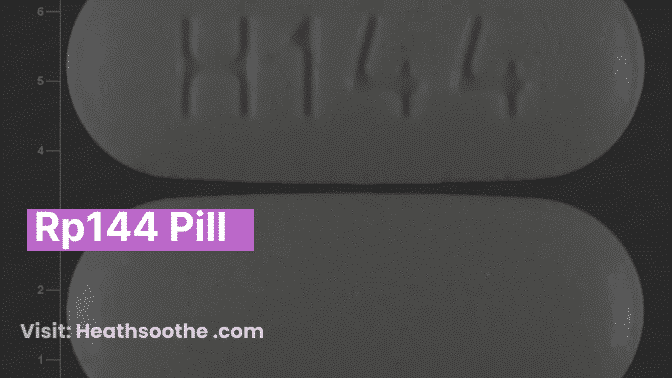Lupron is employed in the treatment of advanced prostate cancer, although it does not serve as a cure. Many forms of prostate cancer rely on the hormone testosterone for their growth and dissemination.
Leuprolide functions by diminishing the body's production of testosterone, thereby impeding the proliferation of cancer cells and alleviating associated symptoms such as challenging or painful urination. It is essential to consult with your doctor regarding the potential risks and advantages of this treatment.
Additionally, Leuprolide is utilized to prevent early puberty, known as precocious puberty, in children. It aids in postponing sexual development, including the growth of breasts/testicles, and the onset of menstrual periods. Furthermore, it retards early bone growth to enhance the probability of achieving a normal adult height. Leuprolide achieves these effects by reducing the production of sex hormones in a child's body—estrogen in girls and testosterone in boys.
What should I tell my care team before I take this medication?
It is crucial to inform your healthcare provider about any existing conditions you may have, including:
- Diabetes
- History of heart disease or previous heart attack
- High blood pressure
- High cholesterol
- Pain or difficulty passing urine
- Spinal cord metastasis
- History of stroke
- Tobacco smoking habits
- Any unusual or allergic reactions to leuprolide, benzyl alcohol, other medications, foods, dyes, or preservatives
- Pregnancy or attempts to become pregnant
- Breastfeeding
How should I use this medication?
This medication is intended for subcutaneous or intramuscular injection. You will receive instructions on how to prepare and administer the medication. Adhere strictly to the provided guidelines, taking the medicine at regular intervals and avoiding more frequent dosing than directed.
Dispose of used needles and syringes in a designated sharps container, not in the regular trash. If you lack a sharps container, contact your pharmacist or healthcare provider for assistance.
Each prescription and refill will come with a specialized MedGuide provided by the pharmacist. It is crucial to read this information thoroughly every time.
Consult your pediatrician if considering the use of this medication in children. While it may be prescribed for selected conditions in children as young as 8 years, precautions are necessary.
In the event of an overdose, contact a poison control center or seek emergency medical attention promptly.
Note: that this medication is for your use only, and it should not be shared with others.
What if I miss a dose?
If you happen to miss a dose, take it as soon as you remember. However, if your next scheduled dose is approaching, take only that scheduled dose.
Avoid taking double or extra doses to make up for the missed one. Consistent adherence to the prescribed dosing schedule is important for the effectiveness and safety of the medication. If you have any concerns or questions about missed doses, consult with your healthcare provider or pharmacist for guidance.
Read Also: CBD and Drug Tests: How to Pass A Drug Test Even After Taking CBD
Pros and Cons of Lupron
Pros
- Prostate Cancer Treatment
- Precocious Puberty Management
- Uterine Fibroid Treatment
- Endometriosis Relief
Cons
- Initial Worsening of Symptoms
- Side Effects
- Menstrual Changes
Differences Between Lupron and Bromphen-PSE-DM
Lupron
- Lupron (leuprolide) is primarily used for the treatment of conditions such as advanced prostate cancer, endometriosis, uterine fibroids, and precocious puberty in children.
- It works by suppressing the production of certain hormones, such as testosterone or estrogen, depending on the specific condition being treated.
Bromphen-pse-dm
- Bromphen-pse-dm is a combination medication used for the temporary relief of symptoms associated with respiratory conditions, such as nasal congestion, cough, and upper respiratory allergies.
- It typically contains three active ingredients: brompheniramine (antihistamine), pseudoephedrine (decongestant), and dextromethorphan (cough suppressant).
Alternative to Lupron
Uterine Fibroids
- Alternatives for treating uterine fibroids may include:
- Gonadotropin-releasing hormone (GnRH) agonists other than Lupron, such as leuprorelin or goserelin
- Uterine artery embolization
- Myomectomy (surgical removal of fibroids)
- Oral contraceptives
- Nonsteroidal anti-inflammatory drugs (NSAIDs)
What may interact with this medication?
It is important not to take this medicine concomitantly with the following medications:
- Chasteberry
- Cisapride
- Dronedarone
- Pimozide
- Thioridazine
Additionally, this medicine may interact with the following medications:
- Herbal or dietary supplements, such as black cohosh or DHEA
- Female hormones, including estrogens or progestins, as well as birth control pills, patches, rings, or injections
- Male hormones, like testosterone
- Other medicines that prolong the QT interval (abnormal heart rhythm)
This list may not encompass all potential interactions. Provide your healthcare provider with a comprehensive list of all medications, herbs, non-prescription drugs, or dietary supplements you are using.
Also, inform them about your smoking, alcohol consumption, or use of illegal drugs, as these factors may contribute to interactions. It is crucial to ensure your healthcare provider has a complete understanding of your medication and lifestyle to prevent any potential adverse effects.
What should I watch for while using this medication?
Make sure to attend regular check-ups with your doctor or healthcare professional to monitor your progress. In the initial week of treatment, you may notice an exacerbation of symptoms, but improvement is expected as you continue with the prescribed regimen.
Some side effects, such as hot flashes, heightened bone pain, increased difficulty passing urine, or intensified nerve symptoms, may occur. It is essential to discuss these effects with your doctor or healthcare professional, as some may ameliorate with continued use of this medication.
Female patients undergoing therapy with this medicine may experience changes in their menstrual cycle or spotting within the first 2 months. If this persists, contact your doctor or healthcare professional for guidance.
Be aware that this medicine might elevate blood sugar levels. If you have diabetes, consult your healthcare provider to determine whether adjustments to your diet or medications are necessary. Regular communication with your healthcare team is crucial to ensure the appropriate management of side effects and to optimize the effectiveness of your treatment.
What side effects may I notice from receiving this medication?
Report the following side effects to your doctor or healthcare professional as soon as possible:
- Allergic reactions such as skin rash, itching, or hives; swelling of the face, lips, or tongue.
- Breathing problems.
- Chest pain.
- Depression or memory disorders.
- Pain in your legs or groin.
- Pain at the site where the medication is injected.
- Severe headache.
- Signs and symptoms of high blood sugar, including increased thirst or hunger, frequent urination, fatigue, or blurry vision.
- Swelling of the feet and legs.
- Visual changes.
- Vomiting.
While the following side effects usually do not require immediate medical attention, it is advisable to report them to your doctor or healthcare professional if they persist or become bothersome:
- Breast swelling or tenderness.
- Decrease in sex drive or performance.
- Diarrhea.
- Hot flashes.
- Loss of appetite.
- Muscle, joint, or bone pains.
- Nausea.
- Redness or irritation at the site where the medication is injected.
- Skin problems or acne.
Note: that this list may not encompass all potential side effects, so it's important to communicate any unusual or concerning symptoms to your healthcare provider. If you have any doubts or questions about side effects, seek medical advice from your doctor.
Conclusion
It is imperative to maintain open communication with your doctor or healthcare professional throughout your course of treatment. The information provided outlines potential side effects that should be promptly reported for timely intervention and guidance.
While some reactions may be expected during the initial stages of treatment, ongoing dialogue with your healthcare team is essential to navigate any challenges and ensure the optimal management of your health. Remember that this list may not capture all possible side effects, so don't hesitate to contact your doctor for medical advice if you experience any unexpected symptoms or concerns.
Your well-being is a collaborative effort between you and your healthcare provider, and staying vigilant about your health is key to a successful and safe treatment journey.



